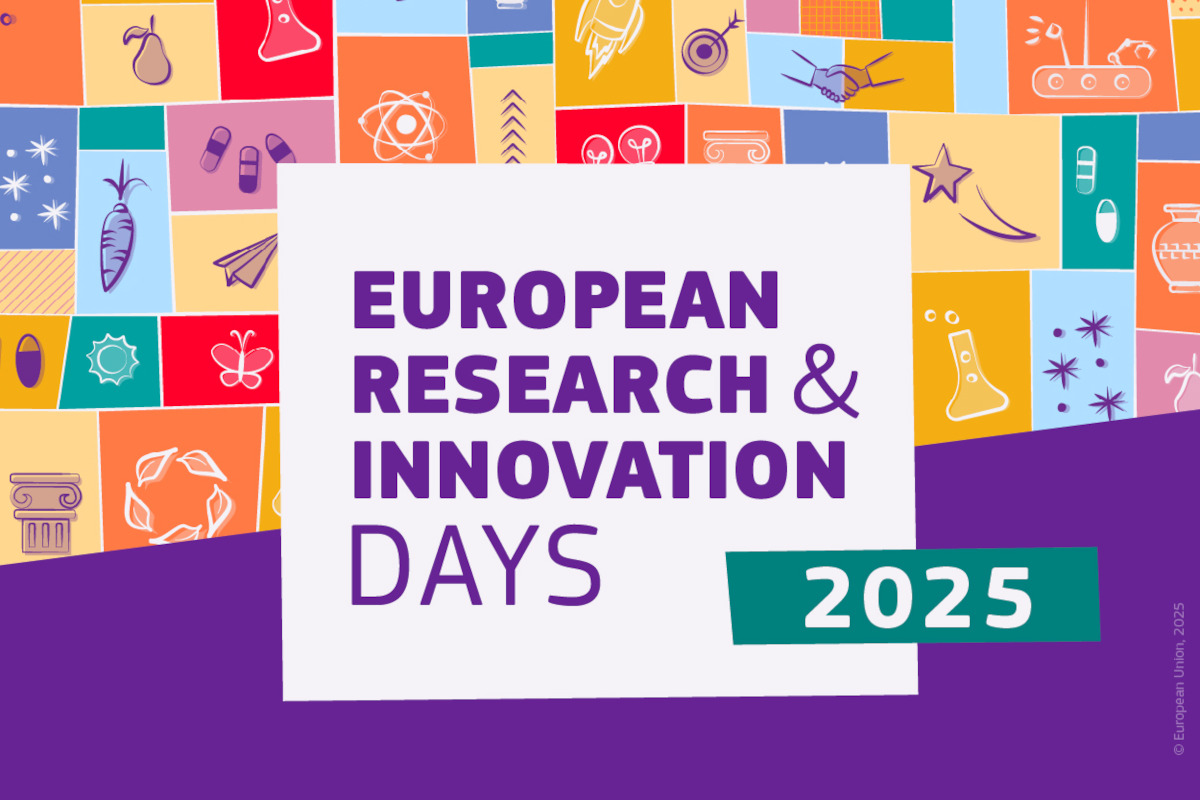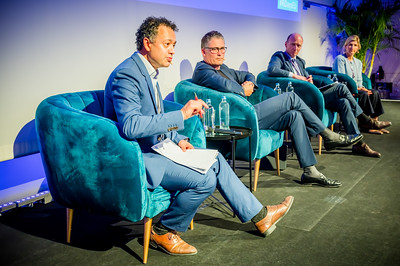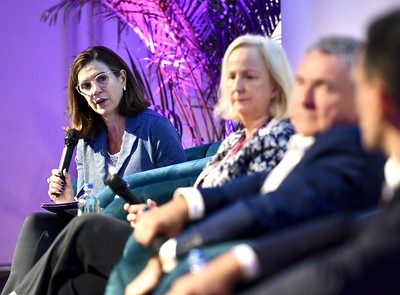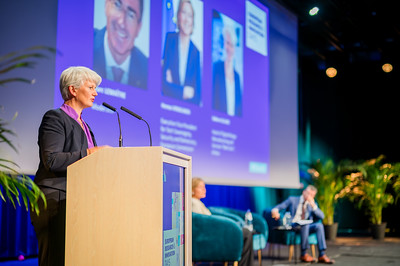Looking Back: Catch Up on This Year’s R&I Days 2025 Through the EURICE Lens
This year, the Research & Innovation (R&I) Days took place on 16 & 17 September 2025 in Brussels, in a hybrid format. The flagship event of the European Commission offers valuable insights to different actors of the European innovation landscape to exchange on and align their operations and practices with upcoming policy initiatives to make R&I activities more impactful in the future.
 At EURICE, we have long been driven by the ambition – reaffirmed by President Ursula von der Leyen and Ekaterina Zaharieva, Commissioner for Startups, Research and Innovation – to make Europe a global lighthouse for research and innovation by helping advance excellent science and translate cutting-edge research into tangible products and companies. The various sessions of the two-day event put a spotlight on the efforts needed to make this vision a reality, starting with the Commission’s proposed game-changing approach for Horizon Europe 2028-2034: the next Framework Programme for EU-funded research is expected to have competitiveness, societal impact, increased investment, dual use of technologies and high-risk/high-reward EIC funding as key conceptual building blocks at its core.
At EURICE, we have long been driven by the ambition – reaffirmed by President Ursula von der Leyen and Ekaterina Zaharieva, Commissioner for Startups, Research and Innovation – to make Europe a global lighthouse for research and innovation by helping advance excellent science and translate cutting-edge research into tangible products and companies. The various sessions of the two-day event put a spotlight on the efforts needed to make this vision a reality, starting with the Commission’s proposed game-changing approach for Horizon Europe 2028-2034: the next Framework Programme for EU-funded research is expected to have competitiveness, societal impact, increased investment, dual use of technologies and high-risk/high-reward EIC funding as key conceptual building blocks at its core.
Insightful penal discussions illustrated how European innovation ecosystems will be further strengthened by EU-level policy initiatives ranging from the recent European strategies for Startups and Scaleups and for Research and Tech infrastructures, to the new AI in Science and Apply AI strategies, complemented by the future ERA and Innovation Acts.
Key messages from panelists underlined the urgency for adequate financing to deliver on these ambitious action plans and the need for moving away from stringent regulation to adopt flexible rules and “out-of-the-box” thinking. The discussions were framed by inspiring examples of breakthrough research funding and commercialisation approaches exemplified in the selected session roundups below.
All session recordings are available online.
- Scaleup funding for Europe’s competitiveness

This discussion revolved around the Scaleup Europe Fund announced as part of the new EU Startup and Scaleup strategy. The Scaleup Europe Fund will be a game-changer to counter the lack of capital available due to insufficient return on public investment in research and will help keep great scaleups in Europe. This ambition can however only become a reality if large corporations increase their engagement with startups beyond acquisition.
The attitude of European investors is signaling a positive shift with more investment going into deep tech. The discussion was framed by experiences shared by Atlantic Bridge (early-stage innovation investment), Novo Nordisk Foundation (grants for impactful R&I projects through open competition) and the EIC Fund (VC funding for deep tech).
- Let’s talk business – how to commercialise breakthrough research

This session showcased innovative technology transfer approaches. The strategy of UCL Business Ltd for successful and impactful spinouts includes quick and fair deals (e.g. venture builder with fixed share of equity for fixed service level), entrepreneurship trainings, an own PoC and investment fund up to series A and social ventures support with a dedicated business manager.
TU Darmstadt presented an alternative strategy consisting of joining forces with other universities and HEIs to build a startup factory (Futury), unlocking private and public investment to support the journey from idea to series C. This collaborative approach and fostering contacts with corporates from early stage proved to boost market adoption and engagement. Additionally, the IP4Virtual Shares model of TU Darmstadt allows easy transfer of IP and increased trust of investors.
- AI-powered research: a competitiveness opportunity for Europe

This session focused on the AI race and how it has accelerated beyond competitiveness to become a question of European sovereignty.
The new Apply AI and AI in Science strategies will contribute to making Europe one of the leading continents on AI – the mission of the next decade. These initiatives aim to leverage infrastructure, upskilling, simplification and removing implementation barriers to support collaboration, investments and uptake of AI. These efforts will be underpinned by the future Data Union strategy to foster a trustworthy environment for data sharing.
Airbus showcased the potential of AI for the defense and aviation sector as a so-called “innovation revolution” contributing to increasing efficiency and to developing sustainable aviation.
The Resource for AI in Science in Europe (RAISE) initiative of the Commission – centralising AI resources for scientists – will be launched at the AI in Science Summit (3 & 4 November 2025 in Copenhagen).